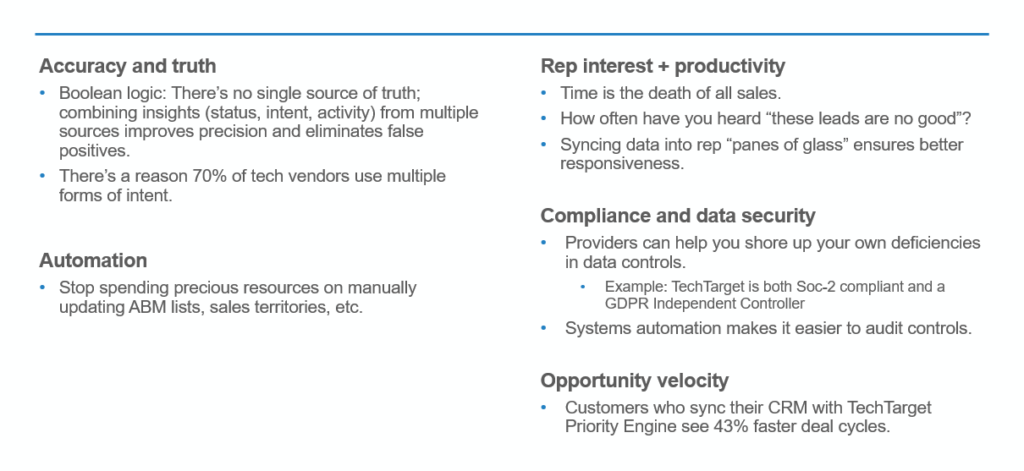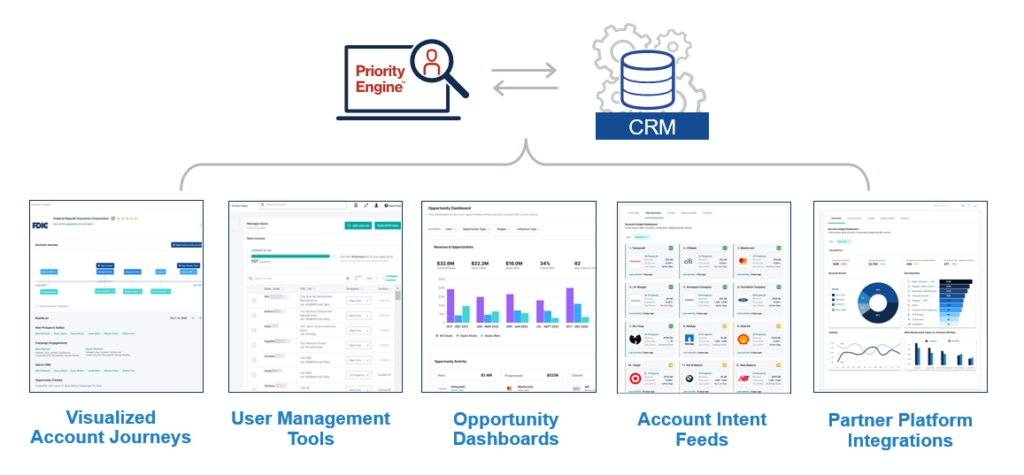When Data Flows, Deals Flow: The Importance of Multi-Directional Syncing

“Data is the new soil.” This may sound like hyperbole, but in the world of B2B tech marketing and sales, they ring true. In fact, Gartner reports that 60% of B2B sales organizations will transition from more intuition-based selling to a data-driven approach by 2025. And with an increased focus on data, it’s critical for organizations to understand how their data flows both internally – specifically with their CRM platform – and with their partners.
In the past, the model for data flow was very linear – one direction from the provider’s database to the customer’s database. Now, with so much data available, businesses are leaving deals on the table by only utilizing a single direction. In this blog, we’ll explore the benefits of multi-directional data flows and how organizations can work with their partners to make their data flows smarter, more intelligent and more focused across individual use cases.
You’re choking off deals when data flows one way
Benefits of syncing your CRM data with your data/marketing provider

Accuracy and truth
Without a single source of truth (as Boolean logic tell us), combining insights from various sources – like your own, with those of a third-party – is the best way to eliminate false positives and improve precision in desired outcomes. This means being able to more accurately target the right accounts at the right time.
Automation
Gone are the days of relying on manually updated spreadsheets with ABM targets, sales territory lists or prospect information. By setting up multi-directional information sync between your own data and a third-party, necessary information on which accounts to target is presented automatically, saving valuable time and reducing errors for both marketers and sales reps.
Sales rep interest and productivity
Speaking of sales reps, time is always of the essence and lead quality matters. More accurate, real-time data flowing between systems allows sellers to be more responsive and attentive to accounts and prospects in their territory and not waste time on those that don’t fit. And as a result, marketers won’t miss hearing from sellers that their leads are no good!
Integrating with CRM automates improved account intelligence, prospect acquisition and systems synchronization

Compliance and data security
One piece of working with personal data that cannot be ignored is compliance and data security. Partnering with a provider that sets up compliance, privacy and security protection controls over the custodianship of that data gives both marketers and sellers the ability to execute their motions more fluidly with confidence.
Opportunity velocity
At the end of the day, marketers and sellers alike are working towards the same goal: increased deal velocity and revenue generation. By utilizing their most important asset and implementing multi-direction data flows, organizations can get there faster and with more efficiency across both marketing and sales teams.
As we enter this new era of relying on data more than we ever have, organizations must use it to their advantage or risk being left behind. Having a CRM as a central data hub was once enough but third-party data providers are proving that synchronization of all available data is the next step in maximizing its power. And we’re seeing it first-hand, as TechTarget customers that sync their CRM data with Priority Engine see 43% faster deal cycles.
To learn more about how prospect-level intent data from TechTarget’s Priority Engine can help your organization increase revenue, watch the webinar How Marketers and Sellers Can Deliver More Revenue with Intent Data or reach out today.


